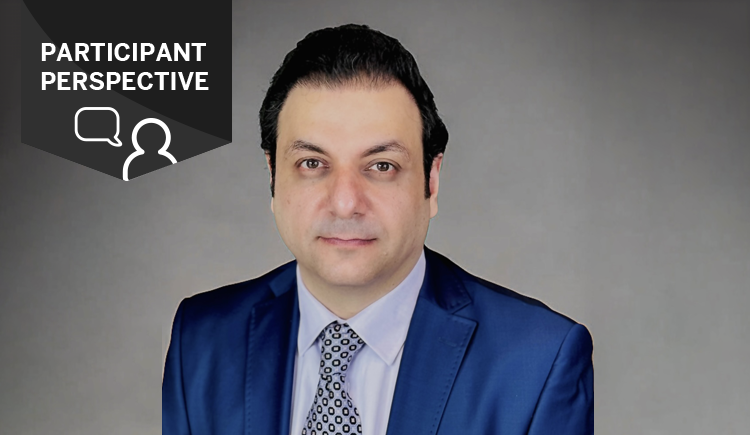
"Change is the law of life. And those who look only to the past or present are certain to miss the future." — John F. Kennedy
Why is it important for physicians to think about the future of medicine? In almost any endeavor, keeping ahead of the curve is rewarded, while missing the boat is met with peril. In the same way, having foresight into the future of health care can mean the difference between success and failure for physicians and their practices.
Physicians must plan for the future of medicine. We live in a period of tremendous upheaval, and things are unlikely to return to normal anytime soon. The only constant is change, and the ability of physicians to prepare for a changing future has far-reaching implications for patients and health care organizations.
Newcomers are currently attempting to shift the clinical landscape to better meet patient care needs. These 'disruptive innovations' may displace those who are unable to adapt to the new trends. The same scenario has repeatedly played out in other markets, with conventional businesses left in the dust as innovators soar to new heights. Therefore, physicians should not only be prepared for the future of medicine, but we should also play a vital role in leading the change.
Forces Shaping the Future of Health Care
We recently completed our Harvard Medical School Executive Education program, Driving Health Care Strategy: Business Insights from Inside the Ecosystem. We had many excellent guest lecturers describe the forces shaping the future of health care. Among these were imperatives to accelerate digital patient engagement, improve quality at lower cost, address drivers of population health, and alleviate physician stress in the clinical workplace.
Accelerated Digital Health
The pandemic has accelerated the implementation of health care technologies and capabilities, which will radically alter the patient experience and clinical outcomes, paving the way for value-based disruption. The future offers hospital-level care provided to a patient's home at a lower cost and better outcomes using established technology such as remote monitoring. Similarly, AI will advance diagnostic capabilities and clinical decision support at a rapid pace. AI may also aid data mining, resulting in breakthroughs in precision medicine and predictive risk stratification. AI-powered technologies, such as health care chatbots, can allow greater access and timeliness of treatment. Although it is unlikely that digital technology will completely replace doctors anytime soon, physicians and practices who use these technologies may soon replace those who do not.
Population Health & Value-Based Care
The importance of focusing on improving health and lowering cost at the population level has been recognized as a critical tactic for sustaining health care and will continue to grow in its significance. Health care providers will likely face greater risk and accountability for the cost and quality of entire populations, with third-party metrics tracking their performance. Physicians are crucial players in supporting integrated care, promoting best practices and achieving the clinical efficiencies required for value-based arrangements. Those with systems in place that can take on more risk to care for populations will position themselves to be successful in this value-based world.
Given that 80 percent of an individual's health is determined by their behavioral and social-environmental conditions, a greater focus on upstream interventions that encourage self-care, chronic disease management, and healthier lifestyles will be needed. This aim cannot be accomplished without addressing social determinants of health, including screening patients for health care disparities and connecting them with appropriate community resources. Physicians can also be powerful allies in the fight for social justice, advocating for initiatives such as stable housing, food security, and anti-discrimination.
Physician Wellness
Unfortunately, the risk of burnout in the clinical setting is as prevalent as it has always been, and it is only going to get worse as the increased stress from the pandemic takes its toll. Burnout is an insidious process that leads to professional and personal harm. Burnout must be recognized as a health system problem rather than an individual one. Administrative overburden, loss of autonomy, and lack of time for actual patient care are common contributing factors. Mitigating burnout will require a dedicated focus on wellness. The focus should be on cultivating a culture of well-being, emphasizing ease of practice (e.g., clinical documentation support, top of license team practicing), meaningful physician engagement, and peer support.
Navigating a Rapidly Changing Health Care Ecosystem
Physician engagement is essential for preparing clinical practices and organizations for the changing nature of the health care environment and the evolving role of clinicians. Physicians are at the heart of the health care system, with the knowledge, expertise, and capabilities necessary to shape the future of medicine.
However, after such turbulent times, and with so much of the future still unknown, the task of redefining and redesigning care can seem overwhelming. The U.S. military introduced the concept of VUCA ("Volatile," "Uncertain," "Complex" and "Ambiguous) to describe how to deal with, and even excel, in this type of unstable and unfamiliar environment.
You can reduce volatility by establishing a shared vision based on core values that serves as a stabilizing force. Uncertainty can be controlled by gaining a better understanding of the situation and taking steps to gather information from both within and outside of the organization in order to learn new ways of thinking and acting. Respond to complexity with clarity, fostering trust and collaboration through transparency and communication, which boosts team performance in challenging situations. Finally, combat ambiguity with agility, as being adaptable and ready to adjust quickly allows for innovation, which gives you a creative, agile advantage during uncertain times.
Developing a Disruptive Mindset
We must also be prepared to challenge our existing paradigms. Positive disruptive thinking is needed to avoid becoming obsolete. Developing a disruptive mindset requires adopting a positive view of change, never settling for the status quo, and a willingness to take a start-up approach to transform health care. It is more than incremental iteration; it is a transformational shift. For example, the progression from records to tapes to CDs represented conventional innovation, while the advent of digital streaming music brought about a disruptive innovation in the music industry.
It is also important to employ 'Design Thinking,' where the patient's experience is considered when developing new health delivery strategies. Redesigning care from the patient's perspective, with their direct input, and incorporating technology to improve patient access and convenience can aid in the implementation of effective patient care solutions.
Why go back to normal when we can redesign a better future? I encourage physicians to take the first step in leading the transformation process. Commit to making things better by finding something to improve. Physicians have the power to restructure the health care system, and using the power to shape the future is the best way to prepare for it.


